第8章 THE RESEARCH MAGNIFICENT(7)
"But though there is little or no fear in an aeroplane, even when it is smashing up, there is fear about aeroplanes.There is something that says very urgently, ‘Don't,' to the man who looks up into the sky.It is very interesting to note how at a place like Eastchurch or Brooklands the necessary discretion trails the old visceral feeling with it, and how men will hang about, ready to go up, resolved to go up, but delaying.Men of indisputable courage will get into a state between dread and laziness, and waste whole hours of flying weather on any excuse or no excuse.Once they are up that inhibition vanishes.The man who was delaying and delaying half an hour ago will now be cutting the most venturesome capers in the air.
Few men are in a hurry to get down again.I mean that quite apart from the hesitation of landing, they like being up there."Then, abruptly, Benham comes back to his theory.
"Fear, you see, is the inevitable janitor, but it is not the ruler of experience.That is what I am driving at in all this.The bark of danger is worse than its bite.Inside the portals there may be events and destruction, but terror stays defeated at the door.It may be that when that old man was killed by a horse the child who watched suffered more than he did....
"I am sure that was so...."
9
As White read Benham's notes and saw how his argument drove on, he was reminded again and again of those schoolboy days and Benham's hardihood, and his own instinctive unreasonable reluctance to follow those gallant intellectual leads.If fear is an ancient instinctive boundary that the modern life, the aristocratic life, is bound to ignore and transcend, may this not also be the case with pain? We do a little adventure into the "life beyond fear"; may we not also think of adventuring into the life beyond pain? Is pain any saner a warning than fear? May not pain just as much as fear keep us from possible and splendid things? But why ask a question that is already answered in principle in every dentist's chair? Benham's idea, however, went much further than that, he was clearly suggesting that in pain itself, pain endured beyond a certain pitch, there might come pleasure again, an intensity of sensation that might have the colour of delight.He betrayed a real anxiety to demonstrate this possibility, he had the earnestness of a man who is sensible of dissentient elements within.He hated the thought of pain even more than he hated fear.His arguments did not in the least convince White, who stopped to poke the fire and assure himself of his own comfort in the midst of his reading.
Young people and unseasoned people, Benham argued, are apt to imagine that if fear is increased and carried to an extreme pitch it becomes unbearable, one will faint or die; given a weak heart, a weak artery or any such structural defect and that may well happen, but it is just as possible that as the stimulation increases one passes through a brief ecstasy of terror to a new sane world, exalted but as sane as normal existence.There is the calmness of despair.Benham had made some notes to enforce this view, of the observed calm behaviour of men already hopelessly lost, men on sinking ships, men going to execution, men already maimed and awaiting the final stroke, but for the most part these were merely references to books and periodicals.In exactly the same way, he argued, we exaggerate the range of pain as if it were limitless.We think if we are unthinking that it passes into agony and so beyond endurance to destruction.It probably does nothing of the kind.
Benham compared pain to the death range of the electric current.At a certain voltage it thrills, at a greater it torments and convulses, at a still greater it kills.But at enormous voltages, as Tesla was the first to demonstrate, it does no injury.And following on this came memoranda on the recorded behaviour of martyrs, on the self-torture of Hindoo ascetics, of the defiance of Red Indian prisoners.
"These things," Benham had written, "are much more horrible when one considers them from the point of view of an easy-chair";--White gave an assenting nod--"ARE THEY REALLY HORRIBLE AT ALL? Is it possible that these charred and slashed and splintered persons, those Indians hanging from hooks, those walkers in the fiery furnace, have had glimpses through great windows that were worth the price they paid for them? Haven't we allowed those checks and barriers that are so important a restraint upon childish enterprise, to creep up into and distress and distort adult life?...
"The modern world thinks too much as though painlessness and freedom from danger were ultimate ends.It is fear-haunted, it is troubled by the thoughts of pain and death, which it has never met except as well-guarded children meet these things, in exaggerated and untestable forms, in the menagerie or in nightmares.And so it thinks the discovery of anaesthetics the crowning triumph of civilization, and cosiness and innocent amusement, those ideals of the nursery, the whole purpose of mankind....""Mm," said White, and pressed his lips together and knotted his brows and shook his head.
10
But the bulk of Benham's discussion of fear was not concerned with this perverse and overstrained suggestion of pleasure reached through torture, this exaggeration of the man resolved not to shrink at anything; it was an examination of the present range and use of fear that led gradually to something like a theory of control and discipline.The second of his two dominating ideas was that fear is an instinct arising only in isolation, that in a crowd there may be a collective panic, but that there is no real individual fear.